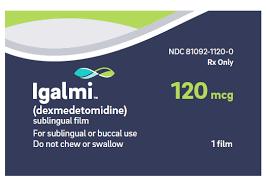Dexmedetomidine Interactions
There are 358 drugs known to interact with dexmedetomidine, along with 4 disease interactions, and 1 alcohol/food interaction. Of the total drug interactions, 8 are major, and 350 are moderate.
- View all 358 medications that may interact with dexmedetomidine
- View dexmedetomidine alcohol/food interactions (1)
- View dexmedetomidine disease interactions (4)
Most frequently checked interactions
View interaction reports for dexmedetomidine and the medicines listed below.
- Acetylsalicylic Acid (aspirin)
- Adrenalin (epinephrine)
- Albuminar-25 (albumin human)
- Anti-D (RHO) Immunoglobulin (rho (d) immune globulin)
- Ativan (lorazepam)
- Azithromycin Dose Pack (azithromycin)
- B Complex 100 (multivitamin)
- Combivent (albuterol / ipratropium)
- Depakote (divalproex sodium)
- Dextrose (glucose)
- Diltiazem Hydrochloride SR (diltiazem)
- Eliquis (apixaban)
- Heparin Sodium (heparin)
- Ipratropium Inhalation Solution (ipratropium)
- Keppra (levetiracetam)
- Lactated Ringers Injection (lvp solution)
- Lasix (furosemide)
- Lithium Carbonate ER (lithium)
- Lovenox (enoxaparin)
- Metoprolol Succinate ER (metoprolol)
- Metoprolol Tartrate (metoprolol)
- Morphine Sulfate ER (morphine)
- Normal Saline Flush (sodium chloride)
- Paracetamol (acetaminophen)
- Tylenol (acetaminophen)
- Valproate Sodium (valproic acid)
- Versed (midazolam)
- Vitamin C (ascorbic acid)
- Vitamin D3 (cholecalciferol)
- Vitamin K (phytonadione)
Dexmedetomidine alcohol/food interactions
There is 1 alcohol/food interaction with dexmedetomidine.
Dexmedetomidine disease interactions
There are 4 disease interactions with dexmedetomidine which include:
More about dexmedetomidine
- dexmedetomidine consumer information
- Compare alternatives
- Pricing & coupons
- Latest FDA alerts (2)
- Side effects
- Dosage information
- During pregnancy
- Drug class: miscellaneous anxiolytics, sedatives and hypnotics
- Breastfeeding
Related treatment guides
Drug Interaction Classification
| Highly clinically significant. Avoid combinations; the risk of the interaction outweighs the benefit. | |
| Moderately clinically significant. Usually avoid combinations; use it only under special circumstances. | |
| Minimally clinically significant. Minimize risk; assess risk and consider an alternative drug, take steps to circumvent the interaction risk and/or institute a monitoring plan. | |
| No interaction information available. |
See also:
Further information
Always consult your healthcare provider to ensure the information displayed on this page applies to your personal circumstances.


